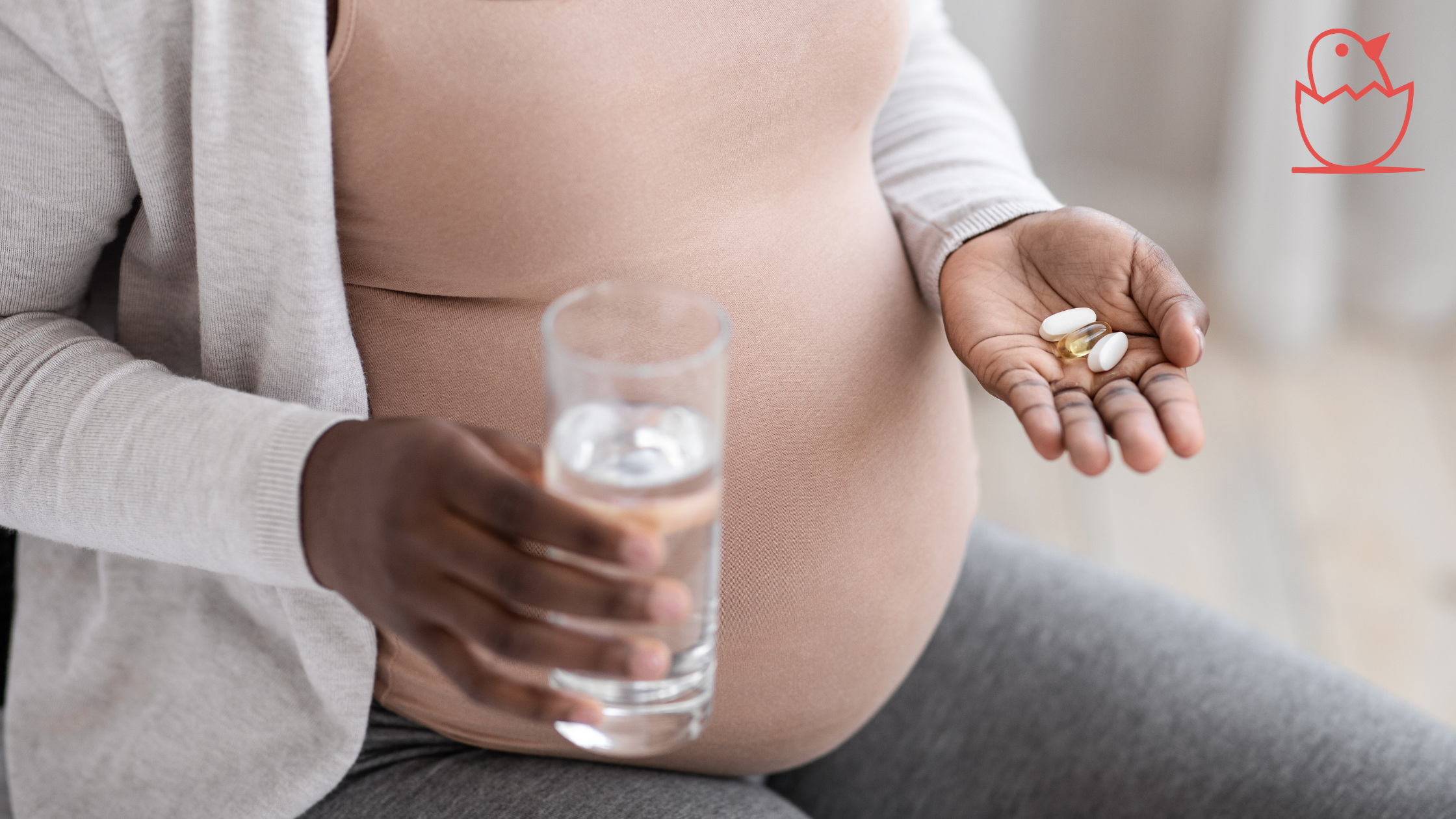Taking prenatal vitamins before you’re pregnant benefits you, your future children, and your future grandchildren. Getting enough nutrients and micronutrients is critical through every stage of your pregnancy, from pre-conception through birth.
Prenatal vitamins can fill critical nutrition gaps that even the most balanced and healthful diet cannot provide. When you’re trying to conceive and become pregnant, your body and baby have extra nutritional demands that are instrumental to a healthy and successful pregnancy.
We take prenatal vitamins seriously, and we’re happy to share the benefits of prenatal vitamins.
What are prenatal vitamins?
Prenatal vitamins are specially formulated to help fill any nutritional gaps, providing you with the vitamins and minerals you need before, during, and after pregnancy. (1)
The 7 benefits of taking prenatal vitamins while not pregnant
During the first few weeks of pregnancy, important growth and changes happen in your body, though you might not even know you’re pregnant at this stage. (1, 2)
This is why it’s ideal to start taking prenatal vitamins 3-6 months before you plan to conceive. Prenatal vitamins contain essential nutrients and micronutrients to help give you and your baby the best possible start from day one to birth and post-pregnancy. (1, 2)
While you’re getting ready to conceive, remember these 7 benefits of taking prenatal vitamins when you’re not pregnant:
1. Fertility health support
Conception and becoming pregnant place large energy and nutrient demands on your body. To support fertility health and healthy pregnancy, it is critical that you get enough nutrients.
Nutrient deficiencies may impact your chances of becoming pregnant. Research shows that deficiencies in vitamins A, B6, D, E, and B12, iron, and folate may make it difficult to become pregnant. (3)
Additionally, if you are undergoing fertility treatment, research shows that supplementation with methylfolate and B12 may support assisted reproductive technology. (4)
2. Placenta development
The placenta is critical to keeping your baby alive and healthy during pregnancy. This temporary organ is essential to your baby’s health and development. The placenta provides oxygen and nutrients to your baby, removes waste and carbon dioxide, produces hormones, and provides immune health support. (5)
Prenatal multivitamin ingredients including iron, probiotics, and vitamin D have beneficial impacts on placenta development. (6, 7, 8)
3. Fetal development
During the early stages of fetal development, your baby’s neural tube is created, and critical neurological developments are starting. (2, 9, 10, 11)
Your prenatal vitamin must contain folate, an essential micronutrient with a primary role in supporting neural tube development and neurological health, including visual, language, and memory skills. (2, 12)
Folic acid, methylfolate, folinic acid, and food folate are all forms of folate. Folic acid is commonly found in multivitamins because it is inexpensive and stable.
Methylfolate is the active form found in our bodies. When you take methylfolate, your body can use it immediately because it doesn’t have to convert it to anything else. That’s why all of our formulas include methylfolate.
Prenatal vitamins should also include choline. Research shows that choline has several critical roles, including tissue expansion, brain development, and neurotransmission. Sufficient intake of choline is critical for proper brain function and neurodevelopment. (13, 14)
4. Healthy iron stores
Pregnant women, babies, and growing infants are the most vulnerable population to iron deficiency. During pregnancy, your body needs extra iron to support fetal and placenta development and to increase your red blood cell volume. Unfortunately, many women are deficient in iron, which can lead to anemia. (15)
Iron is used to make hemoglobin, a protein in red blood cells that carries oxygen to organs and tissues, and myoglobin, a protein that provides oxygen to muscles. This essential nutrient is critical to growth, development, and hormone production.
Women require extra iron during pregnancy to support the extra blood volume needed to provide nutrients and oxygen to their baby. Research shows that iron levels are related to fertility health. One study showed that women who consumed iron supplements had a significantly lower risk of ovulatory infertility compared to women who did not use iron supplements. Additionally, experts believe iron deficiency is related to babies being born prematurely or undersized. (16)
5. Vitamin D supplementation
An estimated 50% of the population is deficient in vitamin D, making this a global health crisis. Ensuring you are consuming sufficient vitamin D is a must for anyone trying to conceive or is pregnant. (17)
Vitamin D helps with calcium absorption, provides immune support, and helps communication between your brain and body. (18)
For anyone trying to conceive, vitamin D helps regulate your sex hormones. It may support better birth outcomes for women receiving fertility treatments and reduce the risk of miscarriage in the first trimester. (19, 20, 21)
6. DHA supplementation
DHA is very important during the first week of your baby’s development, which often occurs before you realize you’re pregnant. Your baby’s brain, spinal cord, and eyes need DHA to develop properly, so it’s important that your prenatal vitamin contains this essential nutrient. (22)
Many of us struggle to get enough DHA through our daily diets, and because we cannot make DHA, it’s important to consume sufficient amounts through our diet or supplements. Taking an omega-3 supplement such as fish oil, or a vegan prenatal DHA supplement, may help support egg quality, delay ovarian aging, support pregnancy rates, and support fetal development.
7. Daily nutritional support
One of the best things you can do to help support your pregnancy goals and to prepare your body for pregnancy is to focus on building healthy nutrition and lifestyle habits. A healthy fertility diet can support conception and overall health for you and your baby during pregnancy and beyond.
However, getting everything your body and baby need to ensure a healthy and successful pregnancy can prove difficult. This is why researchers and health experts recommend that women take prenatal vitamins before pregnancy. Prenatal vitamins provide nutrients such as folate, vitamin B6, iron, iodine, choline, DHA, vitamin D3, and probiotics to help you reach your fertility goals and throughout pregnancy.
Choosing a prenatal vitamin that is right for you
Starting your pregnancy journey is an exciting time. A healthy lifestyle and nutritional habits before trying to conceive can set you and your baby up for success.
Focus on eating a healthy and balanced diet, getting adequate sleep, keeping your stress levels down, and getting daily exercise. – remember the critical role of prenatal vitamins in providing essential nutrient support for you and your baby.
The benefits of taking prenatal vitamins while not pregnant last many lifetimes – for you, your baby, and your future grandchildren.












